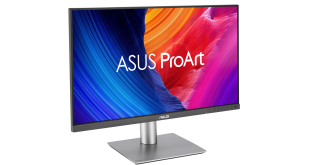Samsung Electronics, one of the world’s most influential consumer electronics makers and also one of the globe’s largest producer of displays, is said to increase production of OLED panels amid growing demand by 33% compared to the volume it makes now. Question is, are they 4K ones? If they are, we seem to have a sensation here.
High-end TV-sets powered by OLED panels are barely popular on the mainstream market due to their excessive price. But to make the technology more affordable, manufacturers have to produce them in larger quantities and finally address the mainstream market with more or less affordable price-points. In a bid to fulfill growing demand for OLED-based TVs, Samsung is projected to increase its production capacity of OLED panels by 33% in 2014, reports DigiTimes web-site.
The adoption of OLED TVs is closely tied to adoption of ultra-high-definition (UHD) TV-sets as well as curved ones. In fact, the only Samsung OLED TV that is officially sold in the U.K. is a curved 55″ KE55S9C series nine with full HD (1920*1080) resolution. According to NPD Display Search market tracking agency, China is the driving force for 4K (3840*2160 resolution).
“As the manufacturers of 4K TV LCD panels and sets expect strong growth in 2014, the supply chain focus on growing demand is rising dramatically,” noted Paul Gagnon, director for global TV research at NPD DisplaySearch. “Panel makers are planning for nearly 27 million 4K TV panels to be produced next year, while brands have somewhat more modest expectations for the end market. There is a significant difference in outlook between China and other regions.”
China can boast with lower-priced ultra-high definition TV-sets and its production companies will likely be able to produce 4K programs, this may have an effect on thee adoption of OLED TVs as well as ultra-high definition TVs in general.
KitGuru Says: Both 4K resolution and OLED type of panels are the holy grail for everyone who watches movies at home. The combination of both technologies seems to be just amazing. But what about the price? It seems like it will remain out of reach of most customers, at least for now.
 KitGuru KitGuru.net – Tech News | Hardware News | Hardware Reviews | IOS | Mobile | Gaming | Graphics Cards
KitGuru KitGuru.net – Tech News | Hardware News | Hardware Reviews | IOS | Mobile | Gaming | Graphics Cards



